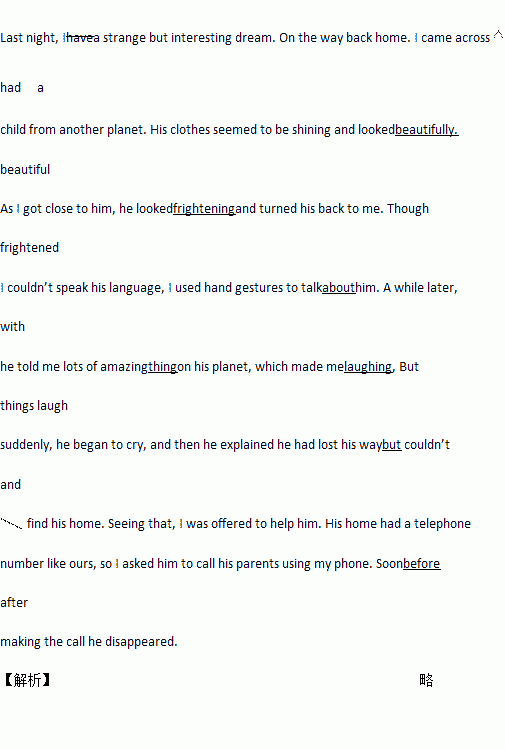题目内容
Last night, I have an interesting dream. On the way back home. I came across child from another planet. His clothes seemed to be shining and looked beautifully. As I got close to him, he looked frightening and turned his back to me. Though I couldn’t speak his language, I used hand gestures to talk about him. A while later, he told me lots of amazing thing on his planet, that made me laugh. But suddenly, he began to cry, and then he explained he had lost his way but couldn’t find his home. Seeing that, I was offered to help him. I asked him to call his parents using my phone. After make the call , he disappeared.
练习册系列答案
相关题目

